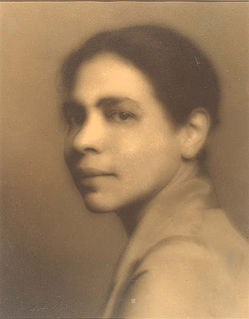A Quote by Rachel Naomi Remen
It is said that the Christian mystic Theresa of Avila found difficulty at first in reconciling the vastness of the life of the spirit with the mundane tasks of her Carmelite convent: the washing of pots, the sweeping of floors, the folding of laundry. At some point of grace, the mundane became for her a sort of prayer, a way she could experience her ever-present connection to the divine pattern which is the source of life. She began then to see the face of God in the folded sheets.
Quote Topics
Became
Began
Christian
Connection
Convent
Could
Difficulty
Divine
Ever
Experience
Face
First
Floors
Folded
Folding
Found
God
Grace
Her
Laundry
Life
Mundane
Mystic
Pattern
Point
Pots
Prayer
Present
Said
See
She
Sheets
Some
Sort
Source
Source Of Life
Spirit
Sweeping
Tasks
Then
Theresa
Vastness
Washing
Way
Which
Related Quotes
Somewhere, within her, in a deep recess, crouched discontent. She began to lose confidence in the fullness of her life, the glow began to fade from her conception of it. As the days multiplied, her need of something, something vaguely familiar, but which she could not put a name to and hold for definite examination, became almost intolerable. She went through moments of overwhelming anguish. She felt shut in, trapped.
I think that one morning, the Papess woke in her tower, and her blankets were so warm, and the sun was so golden, she could not bear it. I think she woke, and dressed, and washed her face in cold water, and rubbed her shaven head. I think she walked among her sisters, and for the first time saw that they were so beautiful, and she loved them. I think she woke up one morning of all her mornings, and found that her heart was as white as a silkworm, and the sun was clear as glass on her brow, and she believed then that she could live, and hold peace in her hand like a pearl.
But this was that view of human destiny which she had most passionately hated and rejected: the view that man was ever to be drawn by some vision of the unattainable shining ahead, doomed ever to aspire, but not to achieve. Her life and her values could not bring her to that, she thought; she had never found beauty in longing for the impossible and had never found the possible to be beyond her reach.
I found her lying on her stomach, her hind legs stretched out straight, and her front feet folded back under her chest. She had laid her head on his grave. I saw the trail where she had dragged herself through the leaves. The way she lay there, I thought she was alive. I called her name. She made no movement. With the last ounce of strength in her body, she had dragged herself to the grave of Old Dan.
Before getting to my mother's house, I would always think of her on the porch or even on the street, sweeping. She had a light way of sweeping, as if removing the dirt were not as important as moving the broom over the ground. Her way of sweeping was symbolic; so airy, so fragile, with a broom she tried to sweep away all the horrors, all the loneliness, all the misery that had accompanied her all her life.
For she was a child, throwing bread to the ducks, between her parents who stood by the lake, holding her life in her arms which, as she neared them, grew larger and larger in her arms, until it became a whole life, a complete life, which she put down by them and said, "This is what I have made of it! This!" And what had she made of it? What, indeed?
Elizabeth Turnage is a woman of grit and grace who lives into the stories of those who join her in this odd journey of seeking God. She honors the complexity of life without ever losing sight of the simple glory of the cross. Her grasp of the mundane and miraculous and their interplay gives a depth and honesty to her story that tugs at the heart and gives us hope our story can matter. Her book will be a clarion call to bring our broken, holy, troubled, and glorious life to the author of all stories: Jesus.
She found out that having something to do prevented you from feeling seasick, and that even a job like scrubbing a deck could be satisfying, if it was done in a seamanlike way. She was very taken with this notion, and later on she folded the blankets on her bunk in a seamanlike way, and put her possessions in the closet in a seamanlike way, and used 'stow' instead of 'tidy' for the process of doing so. After two days at sea, Lyra decided that this was the life for her.
She realized how many of her beliefs were either unrealistic or belonged to her deceased parents and her ex-husband. She also realized that her expectations for herself and others were sometimes too rigid. She was trying to live up to what everyone else said was best for her, which made her depressed and hard to be around at times. Once she changed her beliefs about herself and others, she began to smile more and enjoy life.
He didn't see anything." She rolled to her feet. "I was in your bed! We could have scarred him for life!" "Grace, we weren't doing anything. Well, I wasn't. You were snoring." "I don't--" She smoothed her dress down and searched out her sandals, shoving her feet into them. She glanced at herself in the mirror over his dresser and groaned. Hair, wild. Lips, swollen. Face, flushed. Nipples, hard. "Dammit!" She clapped her hands over them. "It's like they're broken!
I had dinner with Marlene Dietrich in the early 1970s. I went to pick her up and she had someone with her, a dreadful man. He was writing a book about her, and he said to her, 'You're so cold when you perform,' and she said, 'You didn't listen to the voice.' She said the difficulty was to place the voice with the face.
A bride, before a "Good-night" could be said, Should vanish from her clothes into her bed, As souls from bodies steal, and are not spied. But now she's laid; what though she be? Yet there are more delays, for where is he? He comes and passeth through sphere after sphere; First her sheets, then her arms, then anywhere. Let not this day, then, but this night be thine; Thy day was but the eve to this, O Valentine.
She sat leaning back in her chair, looking ahead, knowing that he was as aware of her as she was of him. She found pleasure in the special self-consciousness it gave her. When she crossed her legs, when she leaned on her arm against the window sill, when she brushed her hair off her forehead - every movement of her body was underscored by a feeling the unadmitted words for which were: Is he seeing it?

































